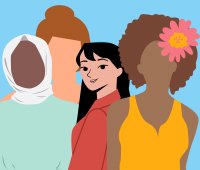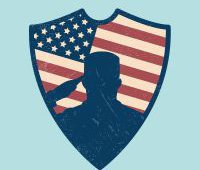School "Concussion Champion" toolkit (9/5/19 newsletter)
We are pleased to have Carleton College students and alumni interning with Concussion Alliance. Intern contributors this week:
Editor: Galen Moller
Contributors: Hannah Kennicott and Julian Szieff.
Do you find the Weekly Concussion Update helpful? If so, forward this to a friend and suggest they subscribe.
Education
How to be a “Concussion Champion” in the educational system
A SCHOOL First toolkit (for school personnel, coaches, students, and parents) explains how you can be a “Concussion Champion” in the educational system. This well-done handbook provides information on how to support students with a concussion and provides links to concussion resources, including the Center for Disease Control (CDC). Developed by Holland Bloorview Kids Rehabilitation Hospital Concussion Center in Toronto, the information applies to educational stakeholders in any country.
HBOT symposium also features leading light therapy researchers
The Hyperbaric Medicine (HBOT) Symposium will address research and medical applications in this field. Additional presentations will be given on cannabis, repetitive transcranial brain stimulation (rTMS), and light therapy. Dr. Margaret Naser will speak about her light therapy research, including her case studies of the two retired, professional football players with possible CTE (See our blog post about this study). Dr. Naeser and researcher/clinician Anita Saltmarche (a Concussion Alliance board member) will give a hands-on LED therapy workshop, as well. The symposium is in Charleston, September 27-29, and provides 18 hours of ACCME-approved Continuing Medical Education Credits.
Sports
High school football team did not tackle during practices and won a state title
An article published in The Washington Post by Roman Stubbs reports that the football team at Ramapo High School in New Jersey did not tackle during their practices and proceeded to win a state title. This is a huge stride for minimizing full contact in sports to reduce concussion risk. The article cites a 2015 study that found that the majority of concussions in high school football players occurred during practices.
Cannabis
The Mayo Clinic publishes a “Clinician’s Guide to Cannabidiol and Hemp Oils”
A Clinicians’ Guide to Cannabidiol and Hemp Oils, by Harrison J. VanDolah, BA, et al., was published in Mayo Clinic Proceedings. The article provides an overview of current research supporting the “use of CBD oils for many conditions,” including pain control. Also included the article is a guide on “identifying higher-quality products so that clinicians can advise their patients on the safest and most evidence-based formulations.” Concussion Alliance would like to note that one of the most common persistent post-concussion symptoms is pain related to post-traumatic headache (PTH).
Diagnostics
What a difference a word makes: terminology in diagnoses of brain injury
While terminology may not be the first thing people think about when discussing brain injuries, some scientists are increasingly focusing on the subtle differences between the terms “concussion” and “mild traumatic brain injury or mTBI.” Scientists claim that while concussion is more commonly understood, mTBI is more accurate and taken more seriously. This is supported by recent research from Naomi Sanderson at Western University in Canada, who surveyed 98 parents of teenagers with a 29 question survey to establish a difference between perceptions of the terms concussion versus mTBI.
She randomly assigned participants to answer questions about a hypothetical diagnosis of their child with either concussion or mTBI and then collected their perceptions of symptoms, treatment, time to recovery, and severity. While the perception of symptoms and treatment was the same, a diagnosis of mTBI made parents perceive that the symptoms would last longer, recovery would be longer, and the additional symptoms of sadness or depression might appear.
While this is a limited sample size and more research is needed in more populations, overall, this suggests that mTBI is perceived as a more severe diagnosis which will be taken more seriously, as it should be. This research is a thesis published in Western Libraries: Graduate & Postdoctoral Studies.
Therapies
Treatment options (other than medication) for sleep problems related to TBI
It is well-established that TBIs can cause sleep disturbances such as insomnia, delayed sleep onset, and early-morning awakenings. A review by Dr. Alphonsa Thomas and Dr. Brian D. Greenwald, published in NeuroRehabilitation, summarizes several non-pharmacological treatment options for TBI-related sleep disturbances.
Sleep therapy and cognitive behavioral therapy are both low-cost, low-risk approaches. Light therapy has also proven to be effective in treating insomnia, particularly exposure to bright light or blue light in the morning (which can be achieved by being outside). Chiropractic and osteopathic manipulative treatment appear to be promising, though the authors acknowledge that there is a gap in the research. Other methods for symptom management discussed in the article include acupuncture, diet, melatonin, and natural remedies.
Veterans & Service Members
Cognitive baseline tests offer new information for military bomb disposal personnel
For the first time, all students entering the Explosives Ordinance Disposal School will receive a baseline cognitive test. These students will graduate to become the military's go-to mean and women for destroying IEDs, unexploded shells, and other explosives, putting them a uniquely high risk for brain injury. According to The New York Times Magazine, this newly mandated baseline testing allows the military to have another method of determining if any brain injury has occurred, by comparing their cognitive abilities before and after blast exposure.
Pre-scanning servicemen and women is not a new idea as the military has done hearing tests before deployment for years now, and they use this data to reduce their exposure to high noise levels. Hopefully, this new testing mandate helps the military be more informed and encourages them to make safety-first decisions for those who are putting their lives on the line.
Mental Health
Teens who play sports and suffer concussions are up to 3 times more likely to be depressed
*Trigger Warning: Suicide*
With suicide becoming a more and more prevalent concern, especially with young adults, the overlap between concussion-related mood disturbances and suicide has become a necessary field of study. In a study published in The Medical Journal of Australia, Amanda Clacy et al. examine the lifetime risk for depression in students who played sports and had at least one concussion. They found teenage students with a sports background and at least one concussion were up to 3 times more likely to experience depression in their lifetime, but they also qualified that they need a larger sample size and a longer-term study to state this conclusion definitively.
There are many issues with studying adolescents. These issues can include: adolescents are difficult to track for a long time; adults recollections of their teen years are often unreliable; adolescence is a time of rapid change, so the difference between a 14-year-old concussion and 16-year-old concussion could be massive. These issues lead the study authors to call for a discussion of the merits of sport which sports we choose to play. They acknowledge the incredible benefits of sport but ask us not to ignore the dangers they pose.
Statistics
Sports and recreation was the leading cause of nonfatal TBIs in children and adolescents
An article written by Kaitlin Sullivan for EverdayHealth summarizes the results of a study published in Brain Injury by Dr. Bina Ali, et al. The study examined data from 2010-2013 and found that sports/recreation was the leading cause of nonfatal TBIs in children and adolescents aged 5-19. For children aged 1-4, the leading cause was home furnishing and fixtures.
Women's Health
Longer recovery time for girls (age 7-18) is linked to girls being taken to specialty care later than boys
For children, symptoms lasting longer than four weeks is considered “failure of normal clinical recovery,” according to the 5th Consensus statement on concussion in sport. Of children and adolescents who suffer a concussion, up to one third will have symptoms which last beyond four weeks. In a study published in the Clinical Journal of Sport Medicine, female children and adolescents (age 7-18) took longer to recover than males in five areas of recovery.
When researchers controlled for the amount of time that it took for females to get specialty care, the difference between male and female recovery times disappeared. The authors Natasha Desai et al. suggest that this is a “modifiable extrinsic factor”, meaning it is possible to change the discrepancy in recovery times if we change how we treat girls with concussion.
Culture
60 Minutes: U.S. diplomats may have suffered brain injury as a result of an attack by a hostile foreign government, possibly a microwave weapon
60 Minutes (CBS News) ran an episode “Brain trauma suffered by U.S. diplomats abroad could be work of hostile foreign government.” Americans working in Cuba and China have suffered mysterious brain injuries, and there is an FBI investigation into whether the attacks involved “a mysterious weapon that leaves no trace.” One of the people interviewed suggested the attack was “radiofrequency energy, in the microwave range.” This could be related to a 2014 National Security Agency report which describes a potential microwave weapon targeting people’s living quarters. Concussion Alliance discussed some of the research related to these brain injuries in our August 8th newsletter.
Speakers on laptops, phones, or PA systems could be hijacked to deliver low-grade sonic attack
Mashable reports that at the Def Con hacking conference, Matt Wixey presented his research that “shows the potential for devices with speakers to be hacked and turned into sonic weapons.” A BBC News article describes how Mr. Wixey, leader of technical research for PwC Cyber Security, “used a program that scanned local wi-fi and Bluetooth networks for vulnerable speakers which it then sought to take over. Any compromised device would then be made to play the weaponized sound.” Very high or low sounds at sustained levels emitted from laptops, mobile phones, or PA systems could potentially cause disorientation or hearing damage.
Research Studies Seeking Participants
Study #1: In-home light therapy treatment for people who have had at least six months of symptoms from a concussion (mild TBI) or moderate TBI, and live within approximately 100 miles of Boston. Dr. Naeser is recruiting 20 participants for this randomized controlled study. Here is the official explanation of the study. The participants will use the Vielight Neuro Alpha device. To inquire, contact Dr. Naeser’s office at the Boston VA Medical Center: 857-364-4029.
Study #2: In-clinic light therapy treatment for people who have had a mild TBI (concussion) or moderate TBI over six months ago, and live in the Boston vicinity. Participants will be given in-clinic light therapy treatments with a device that is not available for home treatments. The treatments will be 3x per week, for six weeks, at Dr. Naeser’s offices at the Boston VA Medical Center. Here is the official explanation of the study. Contact Dr. Naeser’s office for more information: 857-364-4029.
Executive Editor (and Contributor)
Concussion Alliance co-founder Malayka Gormally



























